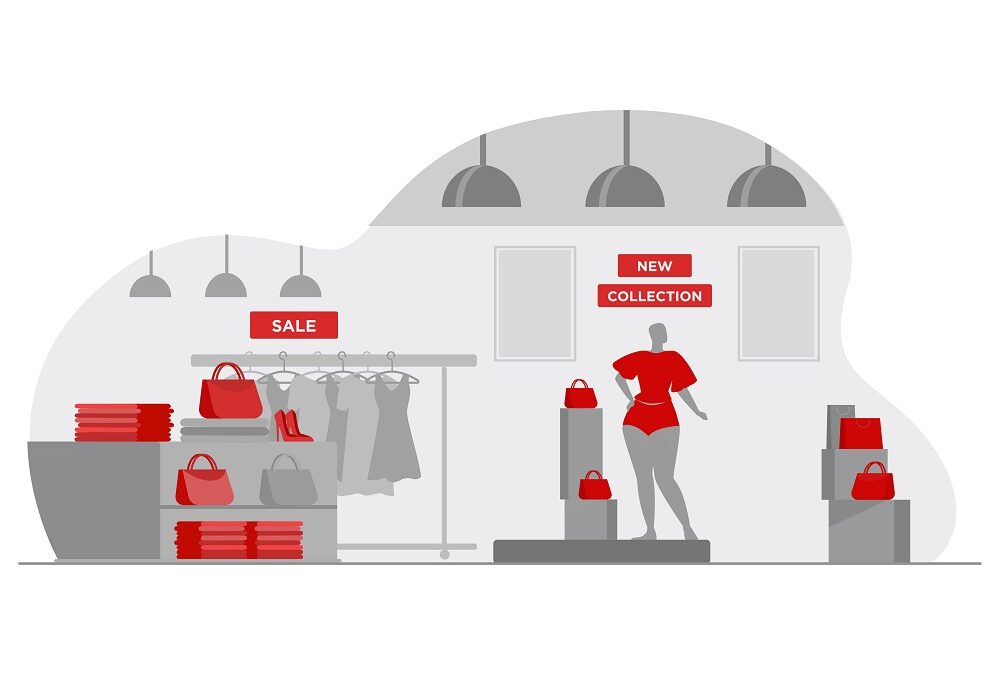The term ‘luxury’ could have different connotations from different perspectives. For some people, it is optional and they may not strongly feel the need to indulge. For some others, it could be a representation of status symbol, personal identity, and distinguishability. It is this latter segment that constitutes almost the entirety of the luxury goods and services market.
The prices of products are often used as a parameter to identify a luxury product in comparison to similar offerings in a market. A product is premium not because it is expensive but building a genuine premium product costs more. Take for example any real estate property. Just because it is an expensive investment, it does not make it premium. But if a property is located in a prime location, then it will have a higher market value. It assumes premium positioning.
A sense of identity is another important parameter in luxury. Not everyone buys an Apple product. But it has been observed that customers do jump to premium products after their income levels cross a certain ceiling. Lifestyle, occupation, and status quo are other important factors that lead customers to go for luxury products.
Today, luxury is no longer about just the ‘product’. It has encircled personalization, sophistication, and a high degree of attention to service and support.
To create and deliver these values and expectations, genuine luxury products are priced at premium rates. Thus, customer segments with high disposable income levels remain the ideal target market.
But then is it easy for luxury retailers because they can create and deliver the value associated with their luxury products and services? As luxury retail consultants, we could tell that the answer is no. There are challenges in luxury and niche markets as well. In this blog, we deliberate on these challenges with the objective of providing insights and guidance for solutions.
Weak Customer Support and Systems
Being in the field of luxury business consulting, we have consistently witnessed that when it comes to customer care and support in luxury retail, nothing less than world-class standards are admissible. Customers here are high-net individuals. They have high purchasing power. They could buy more than what they have come for. They have very likely experienced other luxury brands and their services. They expect high-quality customer care and superior support systems. The quality of services meted out to them has a high impact on the customer experience. So, even a small deviation could mean a customer lost. Many businesses fail to identify and address these aspects pertaining to employees’ behaviour and expertise, technology, and value addition in services.
Lack of Innovation
Nowadays, mobile phone brands frequently launch new models with different value positioning. The idea is to stay relevant by innovating. The new product may or may not have any major overhaul. The innovation could also be in the area of service or channel or at any stage of the customer journey. The same strategy works and is required for luxury brands and retailers as well. Bigger luxury brands like in the auto industry may not innovate frequently but they also have to keep their service marketing on its toes. A small brick and mortar retailer may simply alter the visual merchandising in the store. That would still count as innovation and let customers know that their favourite brand or store is active. Stagnating at innovating could send wrong signals whether it is Rolls Royce, Chanel, or the local perfume store.
Ignoring Staffing and Training Requirements
Customers that buy luxury products represent a unique section of society. They are not just people with high net worth. They also possess broad knowledge and awareness about products, brands and services. Dealing with such customers demands that the employees are technically sound and knowledgeable. One wrong thing they say about any product could mean losing out on a potential sale. In luxury retail consulting, experts know that sometimes customers may inquisitively ask very specific questions. As long as it is pertaining to the product or services, retail staff should be able to answer them. Therefore, from recruitment to training, every HR activity must be planned keeping in mind the target segment and customer experience.
Undefined Operations in the Business
In the long run, retail businesses that operate on planned and advanced processes and systems are more likely to survive and achieve growth. When the operations are planned and process-oriented, there are lesser dependencies on people. And when a business is more into processes and less dependent on people, its operations remain intact irrespective of who is carrying them out. Yes, there are many qualitative aspects that remain specific to individuals. One of the two employees with similar superiority in communication skills may be still better than the other in leading a team. But that can be addressed while defining jobs and job requirements. The same code applies to other areas of business management. With robust processes, it is easier to maintain the required operational standards.
Less Focus on Branding
With more than 10 years of experience in delivering luxury brand consulting services, we always maintain that luxury retail is not about being dependent on the forte of the products. The concept of luxury retailing is intertwined with the living and lifestyle of the target segment. Customers must feel at home. They need to be able to easily associate themselves with the brand throughout their shopping journey whether it is offline, online, or omnichannel. They need to experience the brand in such a way that it resonates with their individuality. How the webstore is designed, how the store is furnished and painted, how customers are greeted, the quality of the digital content on social media, – everything contributes to brand perceptibility.
Poor Control over Franchisees
One major area of disappointment for retail brands could be their franchisees. The brand perception we talked about in the previous point could be entirely lost if franchise luxury store management is poor. As long as it is company-owned-company-operated, things stay good. But when it is franchisee operated, companies are no longer in direct control of how their brands are represented. Take for example any formal footwear luxury brand where the shoes worn by employees also matter. If the retail employees in a franchisee store start wearing sports shoes instead of formal ones and that becomes a norm ignored by the management, sooner or later, customers will notice this undesirable practice. For any regular retail store, employees wearing sports or formal footwear may not be a matter of concern. But sensitivities are quite different in luxury retailing.
Luxury retailing ought to be treated with a higher level of understanding of the customer segment while ensuring that every frontal activity represents the brand and customers’ association with it. Average customer care and support systems are not productive in luxury retail. Product and service explanations and descriptions provided by retail staff in the stores could be nothing but technically sound and accurate with due etiquette and brand representation. And to ensure all of these, retailers need to notch up their operations management.











